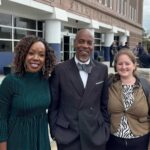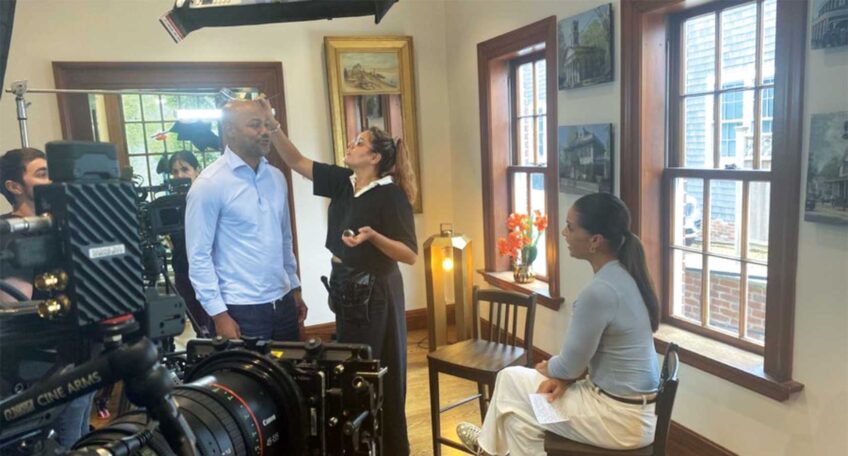
Banner Business Sponsored by The Boston Foundation
By all measures, Larry Miller is a business success story.
Miller is the former president of the National Basketball Association’s Portland Trailblazers and presently works as the chairman of the advisory board for Jordan Brand, the shoe component owned by the former Chicago Bulls and Washington Wizards professional basketball great Michael Jordan.
However, Miller has had scraps with the law and served time for his crimes. He murdered a teenager as a teen himself and a member of a gang. After his release, about four years later, he violated the law again and was reincarcerated.
Miller did get his life together and received degrees from Temple University and LaSalle University and worked for companies such as Campbell Soup before joining Nike Inc., and the Trailblazers. Miller’s message to anyone listening is that people deserve a second chance.
“Committing a crime doesn’t make you a bad person, you just made a mistake,” he said on Sept. 18 at the U.S. Chamber of Commerce’s Reimagining Futures Forum at the U.S. Chamber of Commerce’s headquarters in Northwest D.C.
Miller served as one of the speakers for the event. The forum was designed to encourage business leaders to hire returning citizens.
“We have been working on Second Chance hiring for nearly a decade,” said Glenn Spencer, senior vice president of the employment policy division at the chamber. “It is a spiritual and moral failure not to employ returning citizens. They need to work because if they don’t there is a good chance they will return to a life of crime.”
Second chance statistics
The U.S. Chamber reports in its publication, “Three Opportunities for Employers to Engage Second Chance Hires,” that 79 million people in the U.S. have an arrest or conviction record. Plus, the publication reports 440,000 people are released from jail every year.
Stephanie Ferguson Melhorn, senior director of Global Employment Policy & Special Initiatives for the U.S. Chamber, said that presently the American economy has more open positions than workers.
“Many businesses cannot find qualified workers,” Melhorn said. “There are 8.2 million jobs available and 7.2 million workers. And, soon in the United States there are going to be more elderly than young people.”
Melhorn said most people who return home from incarceration are of working age, 20-55 years old. She said getting a job is not an easy task.
“It is simply hard to get a job, and it is even harder for returning citizens,” Melhorn said.
She said studies have shown that when a formerly incarcerated person has a job, chances of him going back to prison are significantly reduced. Melhorn also quoted a survey that reported that 85% of human resource leaders say that returning citizens perform well as employees and 81% of business leaders say the same thing.
The senior director of Global Employment Policy & Special Initiatives for the U.S. Chamber said hiring returning citizens is not just a good thing to do.
“It is not just a good deed,” she said,” but a sound business strategy.”
Returning citizens, good business
Shea Zwerver works as a workforce relations and public affairs manager for Flagger Force, a traffic control company that operates in the Mid-Atlantic and southern regions of the U.S. Zwerver said Flagger Force is a strong proponent of hiring returning citizens.
“We offer our employees transportation assistance because we know many of them have trouble getting driver’s licenses due to the lack of an acceptable identification,” she said. “We also have a hardship fund to help them get settled.”
U.S. Rep. Danny Davis (D-Ill.) and Carol Miller (R-W.V.) are co-authors of the Second Chance Reauthorization Act of 2024, which reauthorizes reentry grant programs for five years allowing the federal government to invest in efforts to help people successfully reenter their communities after incarceration.
“Continuing to invest in these evidence-based interventions is a commonsense approach to strengthen individuals, re-build families, and grow our economy,” said Davis, 83.
The post appeared first on The Washington Informer.






